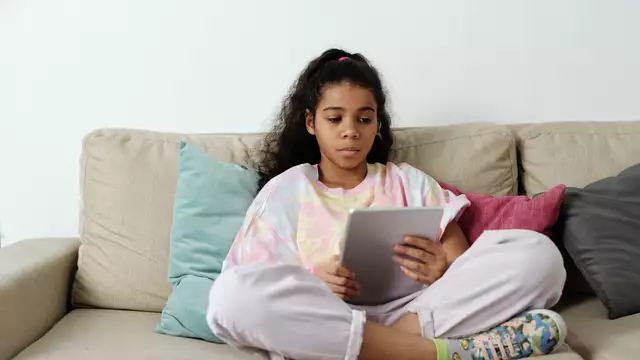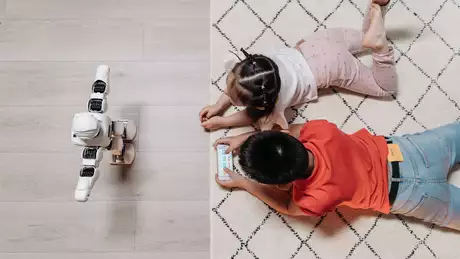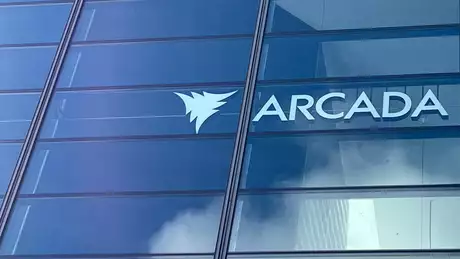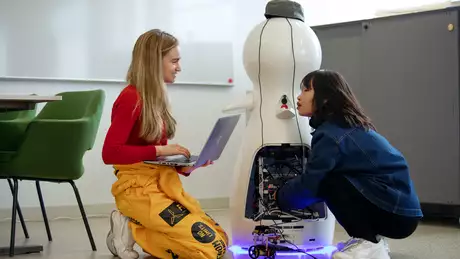
Habilitation as a natural part of a child's everyday life
Published: 08.01.2024 / Fundraising
Six-year-old Lina shows the application with the exercises she did during yesterday's speech therapy for her preschool assistant. A video clip recorded during the therapy captures Lina's communication training, allowing her to repeat the exercises at preschool together with her assistant. This integrated approach aids in further strengthening her communication training.
This fictional situation describes what the future of habilitation and rehabilitation might look like as digitalisation plays an increasingly important role in our health services. People in habilitation services will also have the services integrated as a natural part of their everyday life, like Lina in the example above. Habilitation integrated into all stages of daily life means that the child can focus fully on daily activities for a meaningful life.
Future solutions developed today
For the future to look like this, society needs to keep up with the digital development. Here, Arcada is at the forefront, thanks to the development of digital solutions in the knowledge centre Arcada Health Tech Hub.
The work required to meet future needs involves interdisciplinary co-creation between degree programmes, the public sector, external habilitation actors and IT developers. Thus, Arcada has in collaboration with the universities of applied sciences Metropolia and Savonia, initiated the development of the application DigiMetku for families with children in habilitation.
“DigiMetku is designed for use by children and young people together with their families, to concretely adapt and monitor habilitation goals in everyday life. The application has been designed with children and young people with special needs, their parents and professionals. Involving the end user like this, from the very beginning, increases the understanding of the positive impact of digital solutions on rehabilitation," says Ira Jeglinsky-Kankainen, principal lecturer in rehabilitation.
Efficient information flow – less stress
The application relieves the children and their guardians of the burden of communicating all the information between the parties involved in the child's rehabilitation.
“Families have emphasised that using the application should be motivating rather than burdensome. By completing the application with goals, set by the child's multidisciplinary team, the family can decide how much and with whom they share the information," says Jeglinsky-Kankainen.
Currently, DigiMetku is being piloted in Finnish. In spring 2024, the content will be translated into Swedish and English. Arcada's role is central here, as the UAS is responsible for educating the Swedish-qualified occupational and physiotherapists of the future. At a societal level, this means that Arcada also ensures that the Swedish-speaking population can take part in the health technology of the future.


